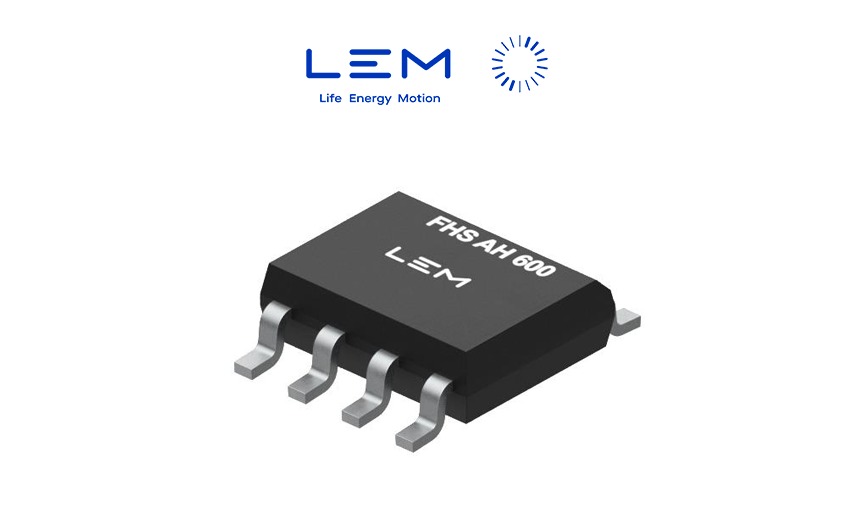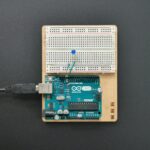What is LEM FHS AH?
Over the past few years, LEM, a leader in providing innovative and highly reliable solutions for measuring electrical parameters has worked at closing the gap between Integrated Current Sensors (ICS) and the historical expertise of the company in Hall effect current sensing, in order to offer a complete ICS range.
LEM’s engineers well understood that customers continuously aim at going smaller, cheaper, and smarter while making zero compromises on component performance. With this in mind, LEM’s teams reluctantly worked on finding a reliable solution to meet its most demanding customers. The team came up with FHS AH field sensor, a contactless, open-loop surface-mounted device based on the Hall effect principle.
FHS AH is a galvanically insulated current sensor that senses the magnetic field generated by the measured current and transforms it into an output voltage. If the current is bidirectional, FHS AH will smartly sense the magnetic field’s polarity and thus generate a positive or negative output voltage relative to the reference voltage.
How does LEM FHS AH make a difference?
The half-nail-sized device fits perfectly into the smallest spaces. It uses an Integrated Magnetic Circuit (IMC) combined with improved sensitivity, offset, and temperature stress compensation, allowing high accuracy and low-noise current sensing. With 160 kHz bandwidth and a fast delay time of < 2 μs, the FHS AH sensor is highly suitable for DC, AC, pulsed, and mixed current measurements.
With its contactless and open-loop surface-mounted specificities, FHS AH is a current sensing solution that guarantees no additional power losses and high dielectric insulation between the primary circuit and transducer electronics.
Equipped with an Integrated Magnetic Circuit (IMC), FHS AH eliminates the need for an external magnetic core. This feature offers flexibility in a compact design, making it the perfect solution for measuring the current flowing through a conductor such as a PCB track.
Choosing the best field sensor fitting your needs
The market is full of IC sensors, but what factors imperatively need to be considered to select the best one for your needs depending on the configuration?
First and foremost, a field sensor should offer significant isolation. In fact, using a double-sided PCB between the primary circuit and transducer electronics will guarantee the level of isolation needed and a highly effective solution.
For small nominal currents (less than 10 A), a multi-turn configuration should be preferred to increase the magnetic field generated by the primary current.
For currents between 10 and 100 A, the single-track configuration is the most interesting. As for higher currents, busbar should be used.
N.B. The above current values are indicative as they depend on many parameters: ambient temperature, copper thickness, cooling, etc. The optimal configuration is the one that will have just enough sensitivity to be able to measure the complete measuring range.
LEM FHS AH at a glance
Main features & advantages
- Hall effect current sensor with Integrated Magnetic Concentrator (IMC)
- Magnetic field measurement range ±3.3 mT
- Supply voltage 5 V
- Low power consumption
- Operating temperature range: -40 … 125 °C
- High bandwidth: 160 kHz
- Excellent linearity < 0.5 % Full Scale
- Sensitivity error < 1 % from –40 … 125 °C
- Insulated current measurement
- Small footprint with standard SOIC8 surface mount PCB
- Low cost, Small size
- Internal reference voltage
Main applications
- Small drives
- Battery management system
- Motor control
- Uninterruptible power supplies
- Heating, ventilation, and air conditioning
- White goods
- PCB track current sensing
Would you like more information about LEM FHS AH? Click on this link:







